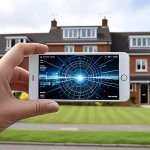Innovations in Smart Ticketing and Payment Systems
Smart ticketing is rapidly transforming UK public transport technology by enabling more efficient and user-friendly fare payment. Contactless payment systems now dominate, allowing commuters to tap debit or credit cards, smartphones, or wearable devices directly at ticket barriers or on buses. This eliminates the need for physical tickets and speeds up boarding times, significantly improving commuter convenience.
Cities like London and Manchester have led the integration of these systems across buses, trams, and trains. For example, London’s Oyster card system evolved into a contactless bank card and mobile payment solution, seamlessly unifying payments across multiple transport modes. This integration offers clear benefits for fare collection efficiency by reducing cash handling and manual ticket sales.
In parallel : What are the key factors driving growth in the UK’s tech industry?
Moreover, mobile ticketing apps complement contactless cards by allowing users to buy, store, and validate tickets digitally. These innovations foster a cashless, streamlined experience while providing operators with rich data to optimize services.
By focusing on interoperability and user-friendly technology, UK public transport technology continues to enhance commuter experience and operational reliability through smart ticketing and contactless payment advancements.
In parallel : How Can the Evolution of UK Technology Shape the Future of Education?
Real-Time Passenger Information and Journey Planning Tools
Real-time tracking has become pivotal in UK public transport technology, offering passengers up-to-date information on bus and train schedules. Passenger apps leverage this data to display live arrivals, service disruptions, and platform changes, enhancing commuter confidence. For instance, Transport for London’s (TfL) mobile app provides route planning, live departure boards, and service alerts, allowing users to make informed decisions on the move. National Rail’s real-time info systems similarly deliver dynamic updates, improving journey reliability.
How does real-time tracking benefit commuters directly? It minimizes waiting times by accurately predicting arrival and departure moments. Passengers can adjust travel plans instantly due to service updates, reducing stress and enhancing convenience. These technologies also enable operators to manage fleets efficiently, responding swiftly to delays or increased demand.
By integrating real-time tracking with passenger apps and journey planning UK-wide, the system becomes intuitive and responsive. This creates a smoother travel experience and encourages greater public transport usage, reinforcing the UK’s commitment to smart, connected mobility solutions.
Innovations in Smart Ticketing and Payment Systems
Smart ticketing in UK public transport technology hinges on contactless payment innovations that simplify fare purchases and speed boarding. By integrating contactless debit and credit cards, smartphones, and wearable devices, transit networks across London, Manchester, and other cities have created seamless travel experiences. This system reduces the need for physical tickets and cash-handling, making journeys faster and more convenient.
Mobile ticketing apps further complement contactless payment methods by enabling users to buy, store, and validate tickets digitally. Passengers gain flexibility—purchasing tickets anytime without queuing, while operators benefit from enhanced data on travel patterns. Integration between different payment options ensures that users can tap different devices or cards interchangeably across buses, trains, and trams, providing a cohesive, hassle-free experience.
These smart ticketing systems improve fare collection efficiency, making it more reliable and less prone to errors. For commuters, the convenience of contactless payment means shorter queues and more fluid movement through stations. Overall, UK public transport technology’s focus on smart ticketing innovations is transforming how passengers engage with transit, creating a smoother, faster, and more efficient travel process.
Innovations in Smart Ticketing and Payment Systems
The UK public transport technology landscape has embraced smart ticketing by deploying contactless payment solutions that significantly elevate commuter convenience. Implementations across major cities like London and Manchester allow passengers to tap bank cards, smartphones, or wearables to pay instantly, removing the need for paper tickets. This innovation accelerates boarding times and decreases congestion, particularly during peak hours.
How does contactless payment enhance fare collection efficiency? It reduces cash handling and manual transactions, minimizing errors and operational costs. These systems also support real-time transaction data, helping operators analyze travel behavior and optimize service delivery.
In addition, mobile ticketing apps complement contactless payment by offering paperless ticket purchase and validation. Integration among various payment methods ensures seamless use across buses, trams, and trains, allowing commuters to switch effortlessly between devices without service disruption.
Overall, the integration of smart ticketing and contactless payment technologies within UK public transport technology creates a digitized, user-friendly environment that benefits both passengers and transit operators through speed, accuracy, and interoperability.
Innovations in Smart Ticketing and Payment Systems
The evolution of smart ticketing in UK public transport technology has profoundly reshaped commuter interactions with transit. The widespread implementation of contactless payment systems allows passengers to use bank cards, smartphones, or wearable devices effortlessly across networks. Cities such as London and Manchester exemplify integrated payment infrastructures, enabling users to switch payment methods seamlessly without interrupting their journey.
How does this integration affect commuter convenience? It eliminates the hassle of purchasing physical tickets or carrying multiple cards, speeding up boarding and reducing queues. The system’s flexibility supports a range of devices, ensuring inclusivity for all users.
Furthermore, mobile ticketing provides added benefits by storing and validating tickets digitally. Operators gain from improved fare collection efficiency as real-time transaction data reduces fraud and errors, while streamlining revenue management.
In sum, smart ticketing combined with contactless payment in UK public transport technology delivers a unified, accessible, and efficient fare system. This innovation transforms travel by enhancing user experience and operational precision throughout urban transit networks.







